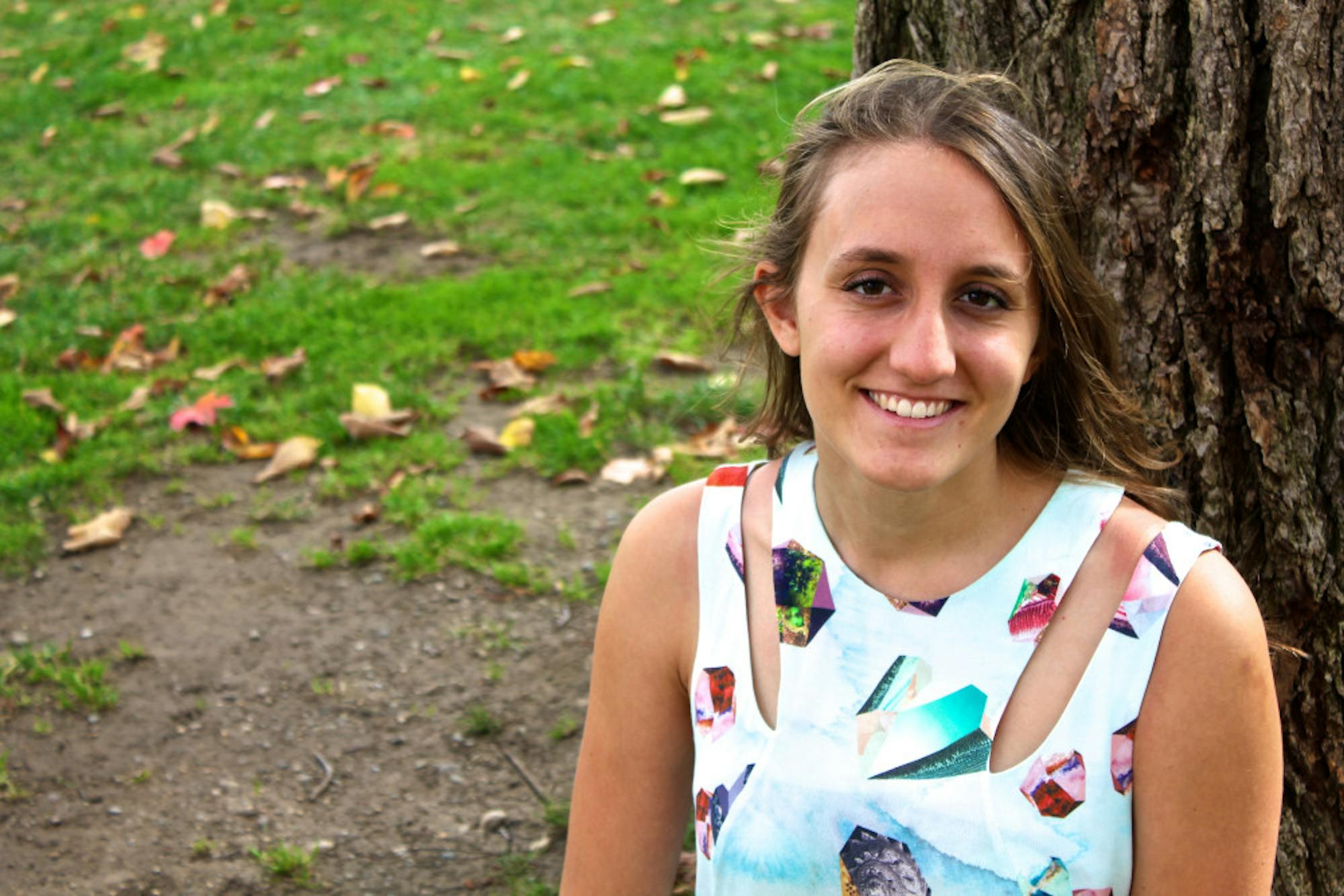Morgan Babbs is lighting up Nicaragua, one solar-powered lamp at a time. With her social enterprise, SolarRoute, Babbs is answering the need for affordable solar technology in developing countries.
Babbs,a senior majoring in international relationsand economics, was inspired to start SolarRoute after working in Nicaragua two summers ago, where she noticed the difficulties of distributing innovative technology.
“It’s not like I planned to start a company, it’s not like that was always my end goal,” Babbs said. “But it just came to me one day and I went with it, and people have been so helpful.”
Her objective is to distribute solar lamps to those living in the "last mile," which she said includes "anybody living in geographic or economic isolation without access to tech, resources or services to lift themselves out of poverty.”
Millions of people live in these areas. Despite the lack of development, supply chains for basic needs and commodities still exist. Babbs has targeted these existing supply chains to distribute solar technology.
The lamps that SolarRoute distributes are extremely important to its customers.
"[The lamps are] one light bulb that basically can light up an entire room, and most of our target market, their household is just one room,” Babbs said. “And these lights also charge phones.”
By working with cell phone credit distributors -- most of the developing world is on pay-as-you-go cell plans, and according to Babbs, 80 percent of Nicaraguans have cell phones -- Babbs found a way to get solar products into many homes.
“There [are] guys on their motorcycles that go out to, like, the entire country on a weekly basis distributing the cell phone credit,” Babbs said. “We started working with them so that they could also sell solar products along their route. So they sell credit, cell phones, SIM cards and now solar products.”
According to Babbs, after its first round in Nicaragua, SolarRoute already has a presence in almost 50 percent of the country.
Babbs' entrepreneurial skills have impressed Tufts' grant providers. For her pilot program, Babbs received funding from the Fletcher School's D-Prize, Tufts’ 100 Projects for Peace and the Institute for Global Leadership.
“We are very pleased that we were one of the initial sustainers and supporters of Morgan through the Empower Grant,” Sherman Teichman, the founding director of the Institute for Global Leadership, said. “I think we’re the primary beneficiary here, not she. She is now one of our Empower coordinators, and has done an extraordinary job over the past couple years. So I would say it's a great, really reciprocal, relationship.”
In addition, she recently received $20,000 in funding from Dorm Room Fund (DRF). According to its website, DRF is a student-run venture firm started and backed by First Round Capital, one of the most successful venture capital (VC) firms in the nation.
Senior Nathaniel Hajian, a political science major, is a member of DRF's Boston Investment Team.
“The idea behind Dorm Room Fund is that all the biggest companies of today, Google, Apple, Microsoft, Facebook, were all started by college dropouts or people in their dorm rooms," Hajian said. "And when those companies were really early ... and could have used some money ... no VCs knew about them. They were too early, just in their dorm rooms. The people who knew about them were the other kids at the school. So what these VCs want to do is find the next company like that."
In addition to Boston, DRF also operates in Philadelphia, San Francisco and New York City. According to Hajian, all funding recipients are discovered by a team of local students.
"They’ve selected between eight to 10 students in each city basically to be student venture capitalists," Hajian said. "So Boston has $500,000 for two years to invest in student startups that we find interesting.”
Hajian and Babbs worked together to prepare the pitch for SolarRoute, which was met with overwhelming approval.
“All of the partners unanimously voted to fund her,” Hajian said.
After a successful pilot, and with new funds from DRF, Babbs’ next step is to expand SolarRoute's reach.
“Our [next] step right now is scale," Babbs said. "So we have presence in about half the country right now, but we do want to work with other cell phone credit distributors and also scale to Guatemala, Panama, Honduras.”
According to Babbs, who plans to run her company full-time once she graduates, SolarRoute hopes “to expand to pay-as-you-go solar, bigger household systems and other tech projects too.”
“She’s extremely successful in the context of being able to create networks, build confidence amongst people,” Teichman said of Babbs. “She’s a very talented young woman.”
Startup brings solar-powered lighting to Nicaragua's 'last mile'

Senior Morgan Babbs, the founder of SolarRoute, hopes to expand the social enterprise's reach in developing countries.





